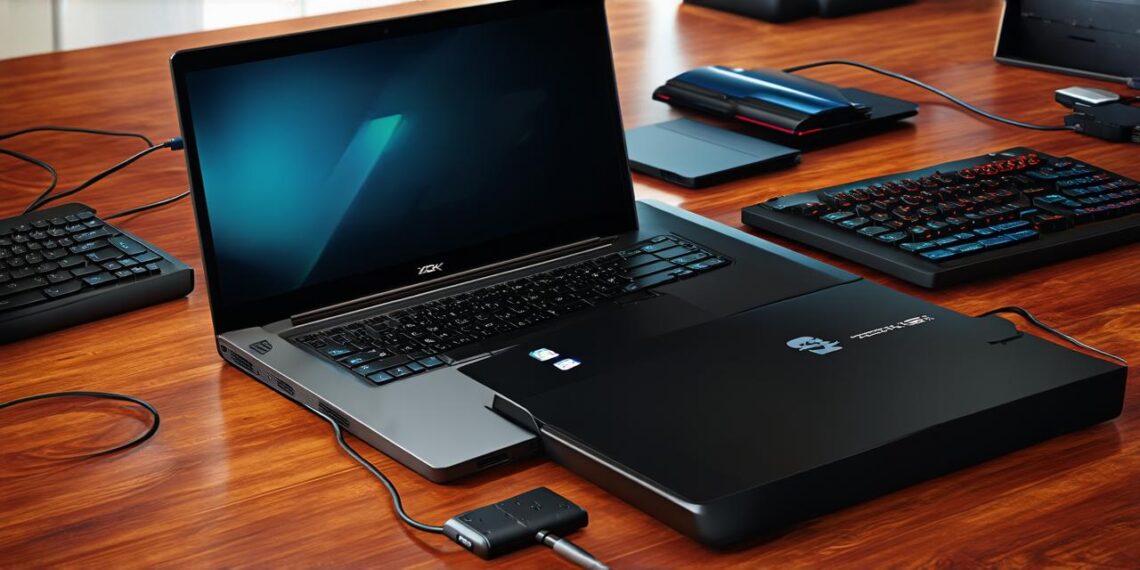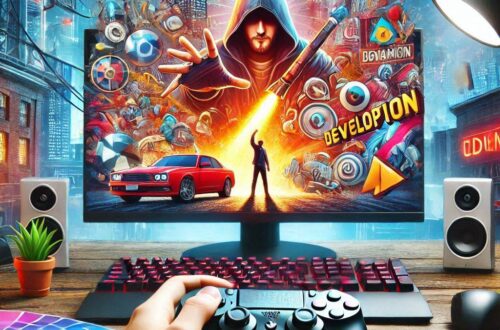Game development is an exciting field that requires creativity, technical skills, and a powerful computer system. If you’re a game developer looking to upgrade your work laptop, there are several factors you need to consider to ensure you get the best bang for your buck. In this article, we’ll explore what makes a laptop perfect for game development, including hardware specifications, software requirements, and other important features.
Hardware Requirements
Processor
The processor is one of the most critical components when it comes to game development. A powerful processor ensures that your laptop can handle the demanding tasks required for game development, such as rendering graphics, simulating physics, and running complex algorithms. When selecting a processor, look for one with multiple cores and a high clock speed. Intel Core i7 and AMD Ryzen 9 processors are popular choices among game developers due to their performance and reliability.
RAM (Random Access Memory)
RAM is another essential component of a good laptop for game development. It provides the laptop with the necessary memory to run multiple applications simultaneously, making it easier to work on different projects at the same time. Aim for a laptop with at least 16GB of RAM, but if possible, opt for one with 32GB or more.
GPU (Graphics Processing Unit)
The GPU is responsible for rendering graphics and animations in games. A dedicated GPU ensures that your laptop can handle complex visual effects, such as shaders, anti-aliasing, and motion blur. NVIDIA and AMD GPUs are the most popular choices among game developers due to their high performance and compatibility with gaming software.
Storage
Storage is also an essential factor when selecting a laptop for game development. Solid-state drives (SSDs) are faster than traditional hard drives (HDDs), making it easier to load games and other applications quickly. Aim for a laptop with at least 256GB of SSD storage, but if possible, opt for one with 512GB or more.

Display
The display is another critical component of a good laptop for game development. A high-resolution display with a wide viewing angle ensures that you can see all the details in your games clearly. Look for a laptop with a resolution of at least 1920×1080 pixels and a refresh rate of at least 60Hz.
Software Requirements
Game Development Software
Game development software is another essential factor when selecting a laptop for game development. Depending on the type of games you want to develop, you may need different software packages. Popular game development software packages include Unity, Unreal Engine, and CryEngine. Ensure that your laptop has enough processing power and storage space to run these software packages comfortably.
Operating System
The operating system is also a critical factor when selecting a laptop for game development. Windows is the most popular operating system among game developers due to its compatibility with gaming software and its widespread use in the industry. However, macOS is also gaining popularity among game developers due to its stability and ease of use.
Other Important Features
Portability
As a game developer, you may need to work on the go, so portability is an essential feature when selecting a laptop. Look for a laptop with a lightweight design, long battery life, and a comfortable keyboard. Laptops with a screen size of 13-15 inches are popular among game developers due to their balance between portability and performance.
Cooling System
Game development can be demanding, and your laptop’s cooling system is essential to prevent overheating and prolong the lifespan of your hardware components. Look for a laptop with multiple fans and good ventilation to ensure that it stays cool under heavy loads.
Connectivity Options
Connectivity options are also important when selecting a laptop for game development. Look for a laptop





